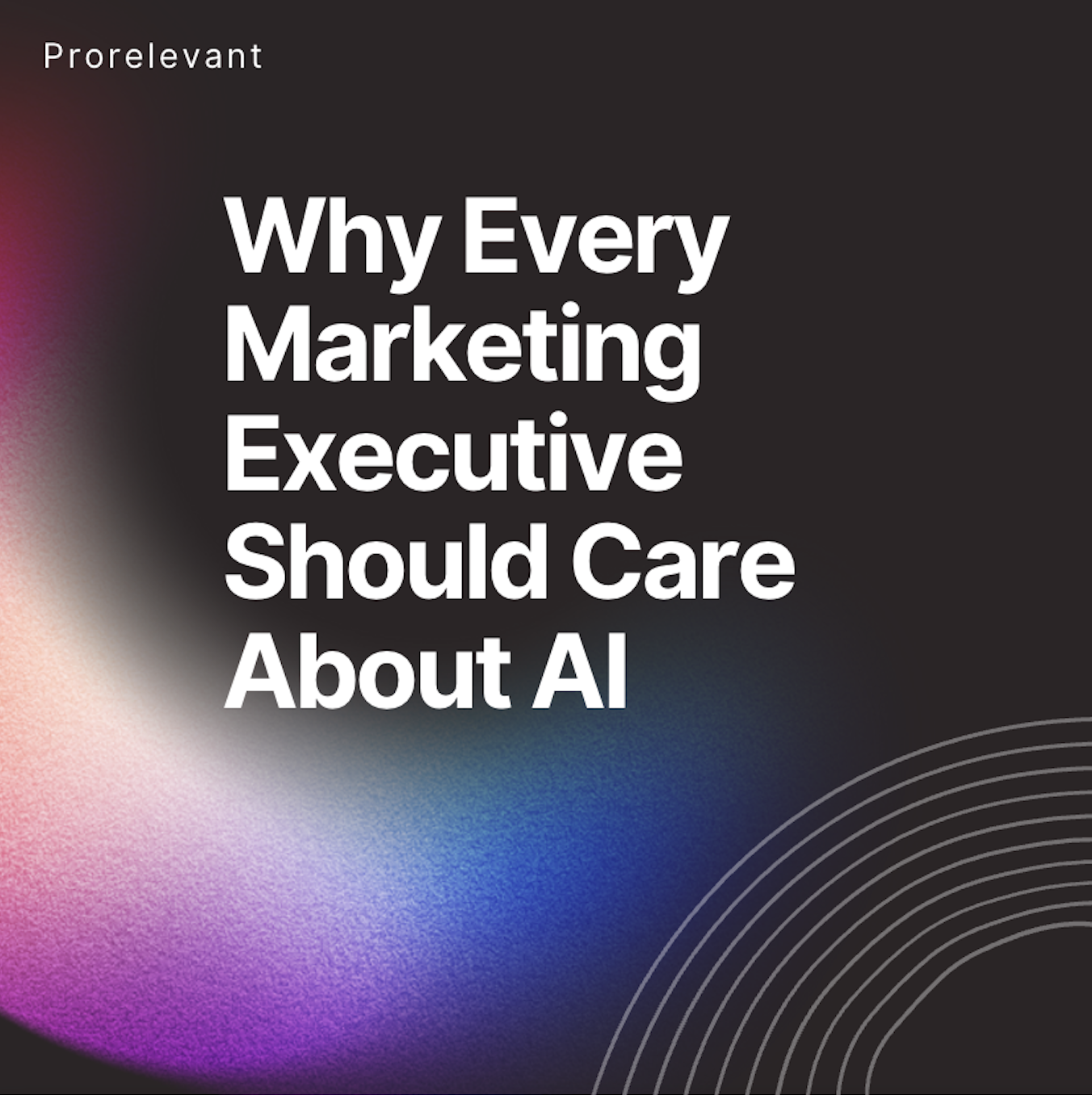
03 Nov Why Every Marketing Executive Should Care About AI
Artificial Intelligence (AI) has rapidly become an indispensable tool in marketing. Its capabilities to analyze vast amounts of data, personalize content, and automate tasks have revolutionized how companies connect with their audiences. For marketing executives, understanding and leveraging AI is no longer just an option but a necessity in staying competitive and relevant in today’s fast-paced business landscape.
- Personalized Customer Experiences:
AI empowers marketing executives to create highly tailored and personalized experiences for consumers. By utilizing machine learning algorithms, companies can analyze customer data to understand behavior patterns, preferences, and buying habits. This data allows for the creation of personalized recommendations and targeted marketing campaigns. For instance, Netflix’s recommendation system uses AI to analyze user viewing habits and preferences, suggesting customized content, significantly increasing user engagement and retention. Marketing executives can similarly employ AI to segment their audience, craft personalized email marketing campaigns, and recommend products or services based on individual preferences. This level of personalization enhances customer satisfaction and loyalty, leading to increased sales and long-term brand affinity.
Moreover, chatbots powered by AI have transformed customer service. These bots can engage with customers in real time, providing instant responses and solutions to queries. For example, Sephora’s chatbot uses AI to offer personalized makeup tips and product recommendations to help customers make informed purchasing decisions. Marketing executives adopting AI-powered chatbots not only enhance customer experience but also streamline their sales funnel by providing immediate assistance, driving higher conversion rates.
- Predictive Analytics for Decision-Making:
AI’s predictive analytics capabilities enable marketing executives to make informed, data-driven decisions. By analyzing historical data, AI can forecast future trends, consumer behavior, and market shifts. For instance, Coca-Cola utilizes AI to predict fluctuations in consumer demand and adjust production accordingly, minimizing waste and optimizing supply chain management. Marketing executives can employ predictive analytics to anticipate market trends, understand customer lifetime value, and forecast sales patterns. This knowledge allows for proactive strategies, such as adjusting pricing, optimizing inventory, and launching targeted marketing campaigns to capitalize on emerging trends.
Furthermore, AI-driven analytics assist in optimizing ad campaigns. For instance, Facebook uses AI algorithms to analyze user behavior and optimize ad delivery to the most relevant audience segments. Marketing executives can leverage this technology to ensure their advertisements reach the right people at the right time, maximizing ROI and minimizing ad spend wastage.
- Automation of Routine Tasks:
AI streamlines and automates mundane marketing tasks, enabling marketing executives and their teams to focus on high-value activities. For instance, email marketing automation tools like Mailchimp use AI to personalize email content and automate sending times based on recipient behavior, leading to higher open rates and engagement. Marketing executives can also use AI-powered tools for social media management, content creation, and scheduling, freeing up time for strategy development and creative initiatives.
Additionally, AI-driven tools like HubSpot and Marketo help in scoring and nurturing, identifying the most promising leads, and automating follow-up processes. By automating these routine tasks, marketing teams can allocate resources more efficiently and effectively.
- Competitive Edge and Innovation:
In today’s dynamic business landscape, staying ahead necessitates embracing AI to innovate and maintain a competitive edge. Companies integrating AI into their marketing strategies can respond more quickly to market changes and customer demands. For example, Amazon’s AI-driven recommendation system significantly contributes to its competitive advantage by continually enhancing the customer experience and driving sales.
Moreover, AI opens doors to new marketing channels and approaches. For instance, voice search optimization is becoming crucial with the rise of smart speakers and virtual assistants. According to the American Marketing Association (AMA), there are eight critical ways for websites to optimize voice search for their users: using long keywords, transforming queries into questions, optimizing content, mobile design, using conversational language, optimizing for future snippets, updating the “Google My Business” page, and localizing your experience. Marketing executives employing AI can develop strategies to optimize content for voice search, gaining an advantage in reaching audiences through this emerging medium.
In conclusion, AI is not just a technological trend; it’s a powerful tool that can revolutionize how marketing executives engage with their audience, make informed decisions, streamline operations, and stay ahead in an increasingly competitive market. Understanding, embracing, and leveraging AI is crucial for marketing executives to drive success in today’s marketing landscape.
Want to know more?
Visit prorelevant.com to find out how you can customize your marketing efforts.
Check out my previous articles about Demystifing Analytic AI and The Intersection between Generative and Analytic AI.
References
Conick, Hal. “8 Ways to Optimize a Website for Voice Search.” American Marketing Association, 15 June 2021, www.ama.org/marketing-news/8-ways-to-optimize-a-website-for-voice-search/.
Parisi, Danny. “Sephora Debuts Chatbot Features for Consumers at Home and In-Store.” Retail Dive, www.retaildive.com/ex/mobilecommercedaily/sephora-debuts-chatbot-features-for-consumers-at-home-and-in-store. Accessed 1 Nov. 2023.




No Comments